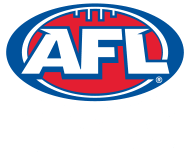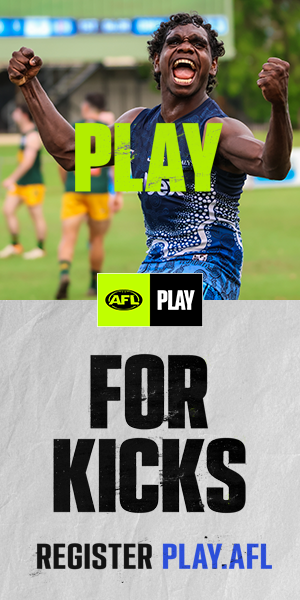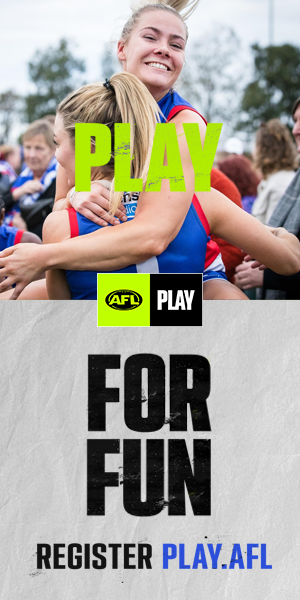Harris Andrews has joined the elite of Queensland football this weekend, becoming the State’s 17th AFL 200-gamer, the equal tallest, the second-youngest and the third most durable. And the first from Aspley.
The Brisbane Lions co-captain, one of the leading key defenders in the AFL, posted his double ton in the season’s best win over Port Adelaide at Adelaide Oval last Saturday.
Fittingly, the Andrews milestone came in the same week as Queensland football welcomed its first AFL Hall of Fame ‘legend’ when Coorparoo junior turned Hawthorn champion Jason Dunstall received the game’s highest individual honour on Tuesday night.
While Andrews has kicked just 11 goals in his first 200 games, a meagre 973 fewer than Dunstall when he became Queensland’s first AFL 200-gamer in 1994, the Brisbane fullback does have the goal-kicking phenomenon covered in some other key statistics.
Andrews was aged 27 years 194 days in his 200th while Dunstall was 29 years 329 days when he kicked five goals for Hawthorn against StKilda at Waverley in his 200th.
Andrews has 2620 possessions to Dunstall’s 2536. And Andrews reached 200 while missing just 19 games. Dunstall missed 30.
While such numbers in reality are little more than interesting football trivia, they do confirm that Andrews sits very comfortably among the best of the best Queensland players.
It’s been a remarkable journey for a player who 12 months before he was drafted by the Lions with pick #61 in the 2014 AFL National Draft was playing at full forward with Aspley in the NEAFL Under 18 competition.
Not just any old full forward – he kicked 80 goals to be the leading goal-kicker in the competition. But if you had suggested at that time that in 2024 that same spindly Aspley spearhead would be arguably the AFL’s best fullback you may have copped a few doubting looks. But that he is.
He was a five-star ‘steal’ at #61 in the 2014 draft. So much so that seven players drafted before him and three shortly after him did not play a single game between them.
He will be the second player from the AFL Class of 2014 to 100 games a week after Collingwood’s Brayden Maynard, who was drafted at #30. And only because Maynard has played an extra two finals.
He has finished top 10 in the Lions best & fairest every year, going 8th-10th-8th-5th-10th-6th-6th-4th from 2015-22 before a stunning 2023 campaign in which he was rated by the Lions coaching staff to have had a better season than the player judged the best player in the competition, Lachie Neale.
He won All-All-Australian selection in 2019-20, was chosen in the All-Australian squad in 2018-23, and, in an often under-rated performance, won three consecutive ‘Most Professional Player’ Awards at the Lions in 2017-18-19.
He was a 36-game veteran at 20 when he won it for the first time in an early pointer to the leadership roles he has filled since, having been appointed to the leadership group in 2018 and served as vice-captain from 2018-22 before is appointment as co-captain alongside Neale.
Ever humble and always unflappable, Andrews is the protype of the modern key defender, combining the defensive ability to shut down the very key forwards in the game, highlighted by a thumping spoil that often sends the ball into the crowd, with the capacity to pull in a match-changing intercept mark deep in defence. And a thumping kick.
One of football’s great gentlemen, appropriately carried off by teammates after the Lions posted their highest score and biggest win ever against Port to mark the occasion, joined a star-studded list of Queenslanders in the AFL 200-Game Club.
In chronological order, after Dunstall in 1994, they have been Scott McIvor (1997), Gavin Crosisca (1997), Marcus Ashcroft (1999), Michael Voss (2003), Jason Akermanis (2004) and Mal Michael (2006). After a five-year hiatus, Nick Riewoldt was 9th in 2011 ahead of David Hale (2014), Daniel Merrett (2016), Jarrod Harbrow (2017), Sam Gilbert (2018), Dayne Zorko (2021) and Charlie Dixon and Charlie Cameron (2023).
So where did they all come from, how did they get to the AFL, and who statistically was better than who?
JUNIOR CLUBS
Southport can claim four of Queensland’s 17 200-gamers – Ashcroft, Riewoldt, Merrett and Gilbert. Morningside was a one-time home to Voss, and Kenmore juniors Hudghton and Michael, and Broadbeach likewise to Hale, originally from Coolangatta, and Zorko.
Cairns, too, has produced two 200-gamers – Dixon originally from Cairns Saints and Harbrow from South Cairns – while Cameron was born in Mt.Isa and educated at Marist College Ashgrove before moving with his family to Western Australia.
And four of the traditional QAFL clubs each produced one AFL 200-gamer – Dunstall from Coorparoo, McIvor from Wilston-Grange, Crosisca from Wests and Akermanis from Mayne.
PATHWAY TO THE AFL
Dunstall, McIvor and Crosisca joined the AFL in the pre-draft era, when Melbourne-based AFL clubs had a recruiting limit of two players from interstate each year.
Dunstall and McIvor famously trained at Fitzroy together in a trial which brought one of football’s great quotes when a senior Fitzroy personality said “the skinny one (McIvor) is OK but the fat one (Dunstall) is no chance”.
So in 1985 McIvor went to Fitzroy and Dunstall went to Hawthorn, while Crosisca, originally from Moorooka before dominating at Teal Cup (Under 17) level at Wests, went to Collingwood.
Ashcroft, Voss and Akermanis were Queensland zone selections to Brisbane, Michael was the AFL’s first rookie when picked up by Collingwood and Riewoldt, Hale and Hudghton were top 10 draft picks – Riewoldt at #1, Hale at #7 and Hudghton at #10.
Merrett (#30) and Gilbert (#33) were later picks, Harbrow and Cameron were rookies, Dixon a set-up concession choice to Gold Coast and Zorko a Gold Coast priority traded to Brisbane before Andrews famously went at #61.
YOUNGEST ON DEBUT
Voss was the youngest debutant among the 17 Queensland 200-gamers, playing his first game at 17 years 11 days after he was deliberately held back by the then Brisbane Bears so he could captain the Queensland side at the 1992 Teal Cup carnival, where, resting at full forward in one game, he kicked a carnival record 14 goals that still stands.
Ashcroft (17), Akermanis, Andrews, Crosisca, McIvor, Riewoldt, Harbrow and Hale (18) and Gilbert, Cameron and Michael (19) also debuted as teenagers, while Merrett, Dixon, Hudghton and Dunstall were 20 and Zorko the oldest at 23.
YOUNGEST AT 200
Akermanis was just youngest to 200 games at 20 years 109 days from Andrews (27/194), Ashcroft (27/197) and Voss (27/272). Riewoldt and Crosisca were 28, Harbrow, Michael, Cameron, Hale and Dunstall 29, Hudghton and McIvor 30, Gilbert and Merrett 31, and Zorko and Dixon 32.
FEWEST GAMES MISSED
Zorko, who missed only seven games between his belated AFL debut and his 200th game, is the ‘Mr Endurance’ of the Queensland 200-gamers. Ashcroft (18) is second from Andrews (19), Cameron (24), Riewoldt (25), Michael (26), Akermanis (27), Dunstall (30), Voss (42), Harbrow (46), Crosisca and Hudghton (47), Hale (55), Merrett (65), Gilbert (75), Dixon (80) and McIvor (83).
THE SHORT AND THE TALL OF IT
According to official AFL records Andrews, at 201cm, is the equal tallest Queenslander 200-gamer with Hale. Dixon (200cm) is third-tallest from Merrett (195cm), Gilbert (194cm), Riewoldt (193cm), McIvor and Hudghton (191cm), Michael (190cm), Dunstall and Crosisca (188cm), Ashcroft (184cm), Voss (183cm), Cameron (181cm), Harbrow (178cm), Akermanis (177cm) and Zorko (175cm).
GOALS AT 200
Next best behind the incomparable Dunstall’s goal tally at 200 of 984 (although less than half) was Riewoldt at 444. Dixon (329), Cameron (256), Akermanis (242) and Zorko (206) follow ahead of Hale (184), Voss (181), Ashcroft (110), McIvor (96), Merrett (70), Crosisca (54), Harbrow (53), Gilbert (36), Michael (28), Hudghton (14) and Andrews (11)
BEST WIN RATIO
Dunstall, a four-time premiership player inside 145 games, had the best win/loss ratio at 200 games among the Queenslanders. He had 152 wins for a 76.0% strike-rate. Cameron (64.82%) pipped Akermanis (64.80%) for second spot, ahead of Voss (59.3%), Gilbert (57.22%), Hale (57.07%), Riewoldt and Crosisca (56.4%), Michael (55.3%) and Dixon (52.8%). Andrews (47.7%) is next best from Zorko (40.5%), Merrett (40.1%), Harbrow (38.9%), McIvor (36.7%) and Ashcroft (35.2%).
POSSESSIONS AT 200
You wouldn’t think two players could finish one possession apart after 200 games – but they did. Voss topped the possession count at 200 games with 4243 from Zorko’s 4242. Midfielders Ashcroft (3890), McIvor (3639) and Akermanis (3561) complete the top five from defender Gilbert (3338), key forward Riewoldt (3263) and key position utility Crosisca (3153).
Andrews’ 199-game count of 2607 is ranked 9th ahead of players who played primarily at one end of the ground or the other – Harbrow (2567), Dunstall (2536), Dixon (2353), Cameron (2228), Hale (2139), Merrett (2056), Hudghton (2009) and Michael (1897).
AND THE BIG ONE …. BROWNLOW MEDAL VOTES
In a statistic that endorses those who insist Voss will be the second Queenslander to be elevated to ‘Legend’ status in the AFL Hall of Fame, the Lions triple premiership captain had 111 Brownlow Medal votes at 200 games – four more than Dunstall.
Voss was the first Queenslander to win the Brownlow when he shared it with Essendon’s James Hird in 1996 and, arguably the best player in the competition through the Lions’ triple premiership era, finished equal 3rd in 2001-02 and seventh in 2000-03.
Dunstall finished equal 2nd in 1988, equal 3rd in 1989, outright 2nd in 1992 and equal 4th in 1993.
Riewoldt, with 96 votes and three top 10 finishes, is next on the Queensland 200-gamer’s vote list ahead of Zorko (79), 2001 winner Akermanis (67), Dixon (39), Cameron (24), Crosisca (22), Harbrow (21) and Merrett (19). Andrews, with votes from 14 games in 2024 still to come, is next alongside Hale (16), Ashcroft (15), McIvor (11), Gilbert (10) and Michael and Hudghton (5).



























































